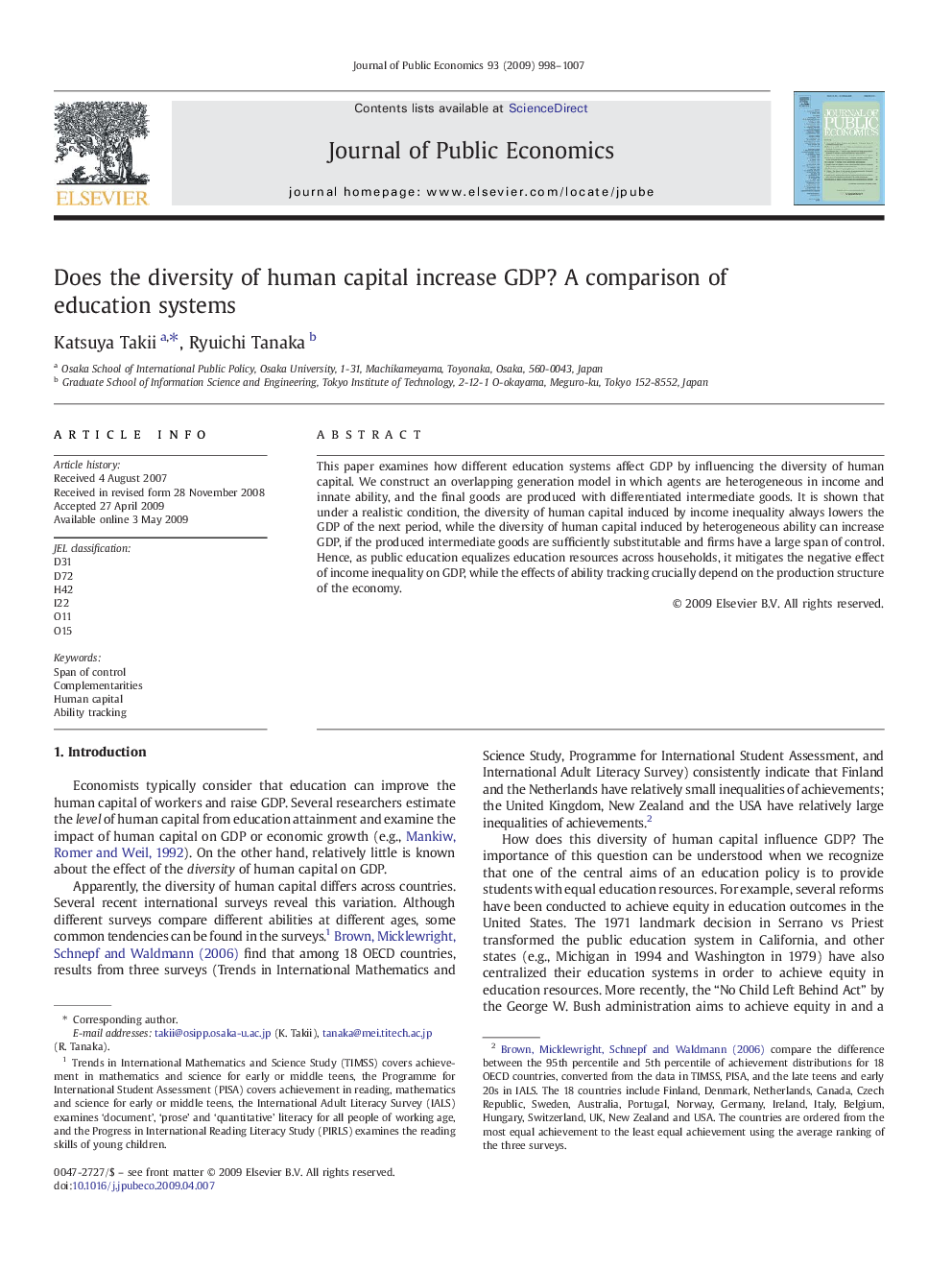| Article ID | Journal | Published Year | Pages | File Type |
|---|---|---|---|---|
| 968780 | Journal of Public Economics | 2009 | 10 Pages |
Abstract
This paper examines how different education systems affect GDP by influencing the diversity of human capital. We construct an overlapping generation model in which agents are heterogeneous in income and innate ability, and the final goods are produced with differentiated intermediate goods. It is shown that under a realistic condition, the diversity of human capital induced by income inequality always lowers the GDP of the next period, while the diversity of human capital induced by heterogeneous ability can increase GDP, if the produced intermediate goods are sufficiently substitutable and firms have a large span of control. Hence, as public education equalizes education resources across households, it mitigates the negative effect of income inequality on GDP, while the effects of ability tracking crucially depend on the production structure of the economy.
Related Topics
Social Sciences and Humanities
Economics, Econometrics and Finance
Economics and Econometrics
Authors
Katsuya Takii, Ryuichi Tanaka,
